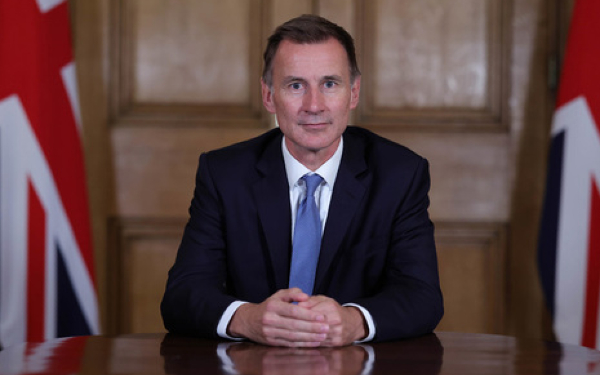
Chancellor Jeremy Hunt has found an additional £165m for building and maintaining open and secure children’s homes as part of a public sector productivity drive announced in today’s Spring Budget.
The government has also pledged to bring forward measures later this year to tackle “profiteering” in the children’s residential sector.
The money announced by Hunt comprises £45m in match funding for local authorities to build homes providing an additional 200 placements, and £120m for maintaining the children’s secure home network and rebuilding two of these homes: Atkinson in Devon and Swanwick Lodge in Hampshire. The funding will cover the next four years.
The funding is in addition to the £259m in capital funding the government had previously allocated from 2022-25 to resource additional placements in open and secure homes.
‘Too many children in unregistered placements’ – Hunt
Announcing the extra money, Hunt said that “too many children in care end up being looked after by unregistered providers that are much more expensive”.
The Treasury’s report on the Budget said the extra capacity created by the new investment would “reduce local government reliance on costly emergency provision and improve outcomes for children by providing them with more suitable placements”.
It added: “The government will also be developing proposals on what more can be done to combat profiteering, bring down costs and create a more sustainable market for residential placements which it will publish later this year.”
Larger providers ‘making higher than expected profits’
The pledge comes two years after the Competition and Markets Authority concluded that profits in the largest private children’s home and fostering providers were higher than would be expected in a well-functioning market, with average margins of 22.6% in residential care from 2016-20.
However, it rejected the case for caps on profits or prices, on the grounds that these would reduce incentives for providers to invest in services and reduce capacity further.
Instead, it called for national and regional bodies to be created to help councils get better value from their commissioning of placements, an idea incorporated into the Department for Education’s children’s social care strategy
DfE’s existing plans to curb placement costs
The strategy, Stable Homes, Built on Love, also envisaged that building more children’s homes and recruiting more foster carers would boost the supply of placements, thereby reducing costs and profit levels.
But its key measure for tackling excess profits was the creation of ‘regional care co-operatives’ (RCCs), as recommended by the Independent Review of Children’s Social Care, to take responsibility for care commissioning from individual councils.
According to the DfE, RCCs would bear down on excessive profits by improving placement planning, making the costs of care more transparent and giving local authorities, collectively, more clout in their negotiations with providers.
However, council leaders have expressed scepticism at the potential for RCCs to address pressures on the placement market, and have urged further action on profit levels, which the government appears to have heeded with today’s announcement.
Directors welcome pledge to tackle ‘profiteering’
In response, the Association of Directors of Children’s Services welcomed the action announced by Hunt “to address the substantial challenges we face in children’s residential care”.
“We are particularly pleased that the government has committed to developing proposals aimed at tackling profiteering in the children’s placements system and to prevent scarce funds being diverted away from vulnerable children, and the public purse, to shareholders,” said ADCS president John Pearce.
“The additional investment to upgrade the existing secure children’s home estate and to rebuild two secure children’s homes as well as some additional capital funding for new residential provision and investment for special free schools is welcome.”
However, Pearce added that there was an “urgent need for government action to ensure there are enough high-quality placements for children in care”, which would require “further substantial funding”.
Extra funding ‘a tiny fraction of what is needed’
This point was echoed by provider body the Children’s Home Association (CHA). Its chief executive, Mark Kerr, said the £45m for open children’s homes was “a tiny fraction” of that needed to address “the sufficiency crisis that is currently preventing children from receiving the care they desperately need”.
Kerr added that, as the money could only be used for capital projects – building or rebuilding homes – it “provides no solution to the acute workforce challenge in children’s social care”.
“It is vital to note that many children’s homes projects aiming to increase provision, including those from previous funding rounds, remain unprogressed due to the inability to staff them,” he added.
However, he said the association was committed to working with the DfE and councils “to develop long-term solutions based on a holistic understanding of the sector”.
Drivers of increased costs
Data shows that the costs of residential care have increased significantly in recent year.
While the number of registered places in homes rose by 11% from 2016-22 (source: Ofsted), council spending on private providers – who run the vast majority – grew by 105% over this period (source: Revolution Consulting).
Last November, Pearce warned that councils faced insolvency without rules to curb the mounting costs of care placements. These have been driven by factors including:
- Fifteen consecutive year-on-year rises in the care population.
- More and more children with complex needs going into care and requiring more intensive provision, such as solo placements, high staff ratios or, increasingly, deprivation of their liberty.
- Reductions in the numbers of secure children’s home and inpatient mental health beds, removing alternative options for these children.
- A fall in the number of mainstream fostering households.
- A mismatch between the location of children’s homes and areas of need.




 Family help: one local authority’s experience of the model
Family help: one local authority’s experience of the model  ‘I spent the first three months listening’: how supportive leadership can transform children’s services
‘I spent the first three months listening’: how supportive leadership can transform children’s services  How senior leaders in one authority maintain a culture of excellence
How senior leaders in one authority maintain a culture of excellence  How staff support ensures fantastic outcomes for children and families
How staff support ensures fantastic outcomes for children and families  Workforce Insights – showcasing a selection of the sector’s top recruiters
Workforce Insights – showcasing a selection of the sector’s top recruiters 

 Facebook
Facebook X
X LinkedIn
LinkedIn Instagram
Instagram
Well another Conservative policy that worked well, I don’t know about other authorities but Somerset closed their homes within this Tory mis reign about 13 years ago.